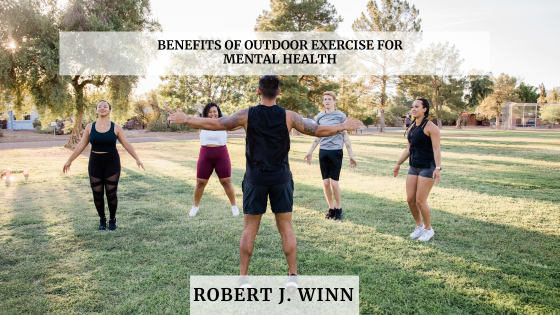Engaging in physical exercise is well-known for its benefits to physical health, but its impact on mental health is equally significant. Outdoor exercise, in particular, offers unique advantages that extend beyond the confines of indoor workouts. The natural environment combined with physical activity can powerfully affect mental well-being. Here’s a closer look at how outdoor exercise can enhance mental health.
Improved Mood and Reduced Stress
One of the most immediate benefits of outdoor exercise is improving mood and reducing stress levels. Physical activity triggers the release of endorphins, often referred to as “feel-good” hormones, which can elevate mood and provide a sense of well-being. Exercising outdoors adds an extra layer of benefit, as exposure to natural light helps regulate circadian rhythms and increases serotonin levels, contributing to improved mood and reduced feelings of depression and anxiety.
Additionally, outdoor exercise provides a change of scenery from the usual indoor environment, which can be refreshing and invigorating. The sights and sounds of nature can offer a calming effect, reducing stress and promoting relaxation.
Enhanced Cognitive Function
Outdoor exercise has been shown to enhance cognitive function and mental clarity. Activities such as running, hiking, or cycling in natural settings can improve attention, memory, and overall cognitive performance. The combination of physical activity and nature exposure can stimulate brain function, increase creativity, and boost problem-solving skills. Studies suggest that spending time in nature can reduce mental fatigue and improve overall cognitive function, making outdoor exercise a valuable tool for enhancing mental acuity.
Increased Social Interaction
Participating in outdoor exercise often involves group activities or social interactions, which can contribute positively to mental health. Whether it’s joining a running club, participating in a group yoga class, or simply walking with a friend, social interaction during exercise can help combat feelings of loneliness and isolation. Engaging with others in a relaxed outdoor setting can foster a sense of community, improve social skills, and enhance overall emotional well-being.
Connection with Nature
Outdoor exercise allows individuals to connect with nature, which has been shown to have numerous psychological benefits. Being in natural environments can evoke a sense of tranquility and grounding, reducing mental clutter and promoting mindfulness. Natural settings often encourage a sense of perspective and appreciation for the world around us, which can enhance overall mental health and well-being.
Improved Sleep Quality
Regular outdoor exercise can contribute to better sleep quality, which is essential for mental health. Physical activity helps regulate sleep patterns, making falling asleep and staying asleep easier. Exposure to natural light during outdoor exercise can also help regulate the body’s internal clock, improving sleep quality and duration. Better sleep can reduce stress, improve mood, and enhance cognitive function.
Outdoor exercise offers a range of mental health benefits, from improved mood and reduced stress to enhanced cognitive function and better sleep quality. Combining physical activity and nature exposure creates a powerful synergy that supports overall mental well-being. Incorporating outdoor exercise into your routine can provide a holistic approach to mental health, promoting a healthier, happier lifestyle.

